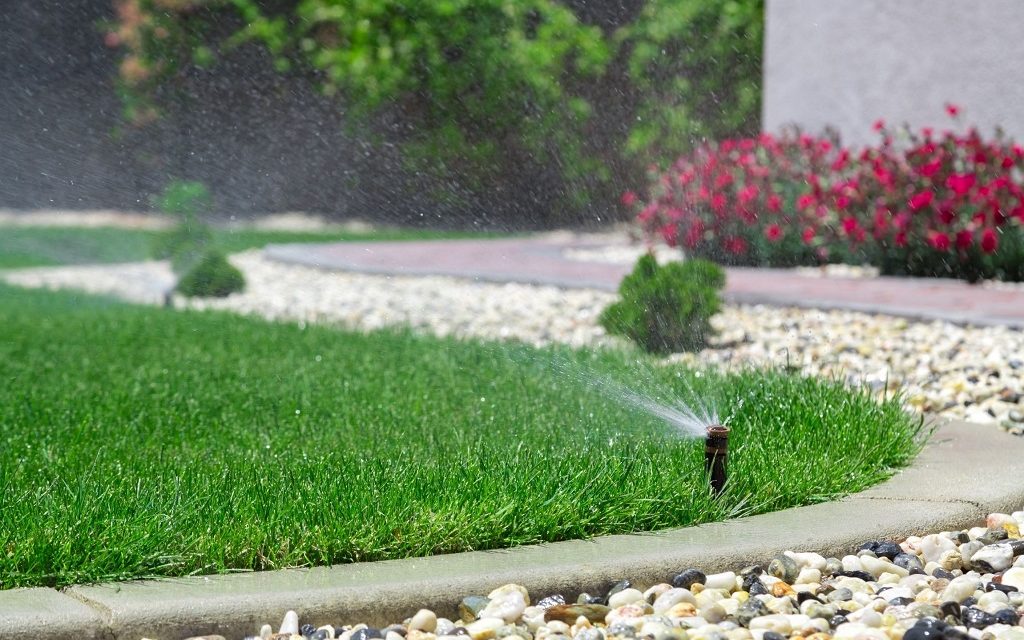Smart irrigation is technology that leverages ambient data sources, such as local weather forecasts and nearby air and soil moisture to adjust water cycles, spray patterns and water amounts for gardens, fields and landscapes.
Smart irrigation systems can also be configured to treat your outdoor grounds based on soil type and the types of vegetation that you are growing.
In order to take advantage of emerging technologies for the home, it is helpful to have a basic understanding of the underlying mechanisms and benefits before making costly or erroneous purchase decisions.
Table of Contents
- Smart Irrigation Benefits
- How Do Smart Irrigation Systems Work?
- Types of Smart Irrigation Systems
- Leading Smart Irrigation Brands
- Recommended Reading
Smart Irrigation Benefits
The benefits of smart irrigation systems can be summarized into three important groups:
- Improved yard, plant and tree care
- Reduced costs
- Increased convenience
The technical capabilities of smart irrigation intertwine to deliver all of these advantages:
- Smart measurement of moisture ensures accurate water cycling for the given terrain and foliage
- Accurate and efficient watering decreases unnecessary watering, which can dramatically reduce costs and waste
- Automated features make lawns and gardens significantly easier to care for and more enjoyable
When considering the cost of a smart irrigation system for your home, a quality system will likely always pay for itself from future water savings. The key purchase criteria should be finding the solution that best fits your needs and usage preferences.
How Do Smart Irrigation Systems Work?
A smart irrigation system consists of a controller that can be programmed or interacted with either directly or by a remote software application (e.g. smart phone app). Most smart irrigation controllers are WiFi-enabled or have Bluetooth capability or both to facilitate remote access.
The controller communicates with either local in-soil moisture sensors or a local weather data center or an on-site weather reader.
Even if a system does not have moisture sensors in or on the ground, or somewhere nearby, significant performance benefits can be gained from real-time weather forecasts and readings from local weather data centers.
Programming a smart controller is similar to traditional sprinkler systems, with the big exception being that you can program your water cycling by soil type and enable dynamic override that will take effect as needed by weather patterns and soil moisture levels.
To gain full benefits of a smart irrigation system, controllers and sensors should work in tandem with water-efficient emitters (e.g. rotors and spray heads), as well as be programmed with a sufficient number of watering zones, for further optimization.
Types of Smart Irrigation Systems
There are two kinds of smart irrigation systems:
- Weather-Based
- Soil Moisture-Based
Weather-based smart irrigation controllers use either local weather data, historical weather data, or on-site data to adjust irrigation schedules. Weather data consists of four parameters:
- Temperature
- Wind
- Solar Radiation
- Humidity
Weather data is considered to be the most accurate method of determining your lawn’s watering needs. Weather-based smart irrigation controllers are also referred to as Evapotranspiration (ET) controllers.
Smart irrigation systems that use soil moisture-based, on the other hand, have moisture sensors buried within the root zone of that soil to transmit moisture level readings back to the controller. These sensors are configured to provide one of two basic functions:
- Irrigation is started when the moisture is insufficient
- Irrigation is stopped when there is sufficient moisture
Leading Smart Irrigation Brands
Rachio 3 Smart Sprinkler Controller
Rachio is a leader in providing exceptional water efficiency for residential applications and is well-known for their easy-to-use products. Unique to Rachio is their patented “Water Intelligence” which uses advanced weather forecasting that leverages a network of over 300,000 weather stations to take the guesswork out of watering schedules. Their Rachio 3 controllers are so smart that they can automatically skip watering when sufficient levels of rain are forecasted. This proactive approach to home lawn care is a brilliant example of what we refer to as Prescriptive Home Maintenance.
Raid Bird ST8-2.0 WiFi Smart Irrigation Timers
The most well-known name in irrigation technology is Rain Bird, a leading global manufacturer and provider of irrigation and services for both residential and commercial use. The company’s most popular innovation, the ST8 -2.0 WiFi Smart Timer, allows you to monitor and adjust your irrigation system remotely using any mobile device. This product is ideal for homeowners wishing to upgrade their older sprinkler controllers to take advantage of mobile access, ease of use and more sophisticated options, like notification alerts for watering events such as freeze warnings.
Additional Quality Smart Irrigation Controllers
- Orbit B-Hyve 57950
- RainMachine Touch HD-12
- Plaid Systems Spruce Irrigation System
- Netro Smart Sprinkler Controller 12 Zone
Recommended Reading
- Best Gardening & Landscaping Shows on Amazon Prime
- The Current State of Landscaping Technology for Your Home
- 9 Helpful Gardening Apps to Augment Your Green Thumb
- 7 Ingenious Tech Products for Weed and Pest Control
- Are You Ready for a Robotic Lawn Mower?
- Uber Apps for Lawn Care and Outdoor Services
- On-Demand Snow Removal Apps for the Uber-Generation
- Why Prescriptive Maintenance is the Cure for Homeowner Headaches
| Purgula is reader-supported. When you click on links to other sites from our website, we may earn affiliate commissions, at no cost to you. If you find our content to be helpful, this is an easy way for you to support our mission. Thanks! Learn more. |







